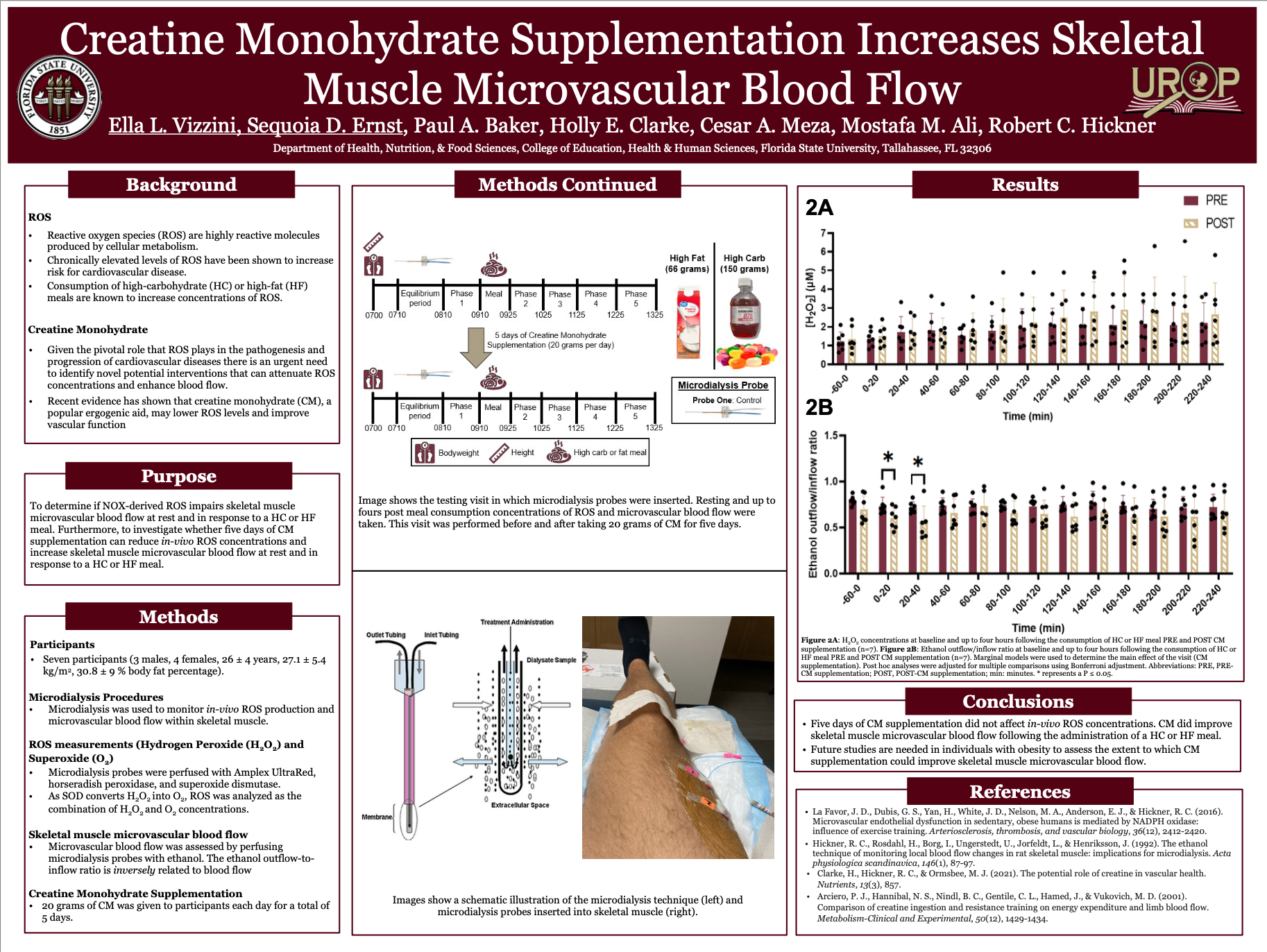Research Symposium
24th annual Undergraduate Research Symposium, April 3, 2024
Ella Vizzini Poster Session 1: 9:30 am - 10:30 am /342

BIO
I am a sophomore Exercise Physiology major from Fort Lauderdale, Florida with a passion for cardiovascular and exercise science research. My hobbies include working out, cooking, and enjoying time with friends and family.
Creatine Monohydrate Supplementation Increases Skeletal Muscle Microvascular Blood Flow
Authors: Ella Vizzini, Paul BakerStudent Major: Exercise Physiology
Mentor: Paul Baker
Mentor's Department: Department of Health, Nutrition, and Food Sciences Mentor's College: College of Education, Health, and Human Sciences Co-Presenters: Sequoia Ernst
Abstract
The incidence of cardiovascular disease (CVD) and obesity has risen to alarming levels. An early indicator of CVD is the impairment of skeletal muscle blood flow (SMBF). This impairment is thought to be induced by elevated levels of oxidative stress, otherwise known as reactive oxygen species (ROS). ROS production is escalated by excess body fat, advancing age, and consumption of high sugar meals. NADPH oxidase (NOX) is the primary producer of ROS in the blood vessels that is believed to contribute to CVD. The current project aims to expand on previously funded IDEA grant work by examining the effect of NOX on SMBF muscle in a CVD at-risk population. The main objective of this study is to determine the effect of NOX produced ROS concentrations on SMBF at rest and four hours following meal consumption in older adults who are overweight or obese. Our hypothesis studies the idea that NOX produced ROS concentrations will impair SMBF for the entire four hours post-meal in older adults who are overweight or obese. Participants will visit the laboratory and have up to two microdialysis probes inserted into their muscle to assess in-vivo ROS and SMBF, at rest and up to four hours following the consumption of a high sugar meal. Findings of this study will benefit the at-risk population of overweight and obese individuals by determining risks of CVD and contributing to CVD research to aid in treatment and prevention.
Keywords: Exercise Science, Cardiovascular Disease, Creatine Monohydrate

